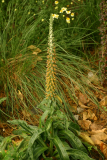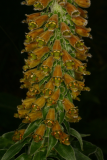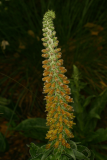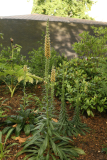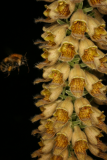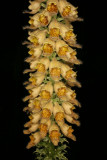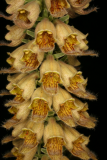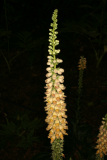Additional notes (click to expand)
Phytochemistry
Active princile: all parts: several cardenolides (purpurea glycoside, lanatoside, digitoxin, digoxin).
Wink, M. (2009). Mode of Action and toxicology of plant toxins and poisonous plants. Mitt. Julius Kuhn-Inst. 421:93-111. p.99
Toxicity
Class 1a. Extremely hazardous: cardiac glycosides inhibit Na+,K+-ATPase, typical cardiac glycoside
intoxication, vomiting, diarrhoea, gastroenteritis, severe headache, irregular heartbeat and pulse,
convulsions, CNS disturbance, cardiac arrest, sudden death.
Wink, M. (2009). Mode of Action and toxicology of plant toxins and poisonous plants. Mitt. Julius Kuhn-Inst. 421:93-111. p.99
Toxic due to cardiac glycosides that may derange cardiac rhythm and gastro-intestinal upsets.
Professor Anthony Dayan, 2022
Geographical distribution
- Asia-Temperate, Caucasus, Transcaucasus
- Asia-Temperate, Western Asia, Iran
- Asia-Temperate, Western Asia, Lebanon-Syria
- Asia-Temperate, Western Asia, Turkey
- Europe, Middle Europe, Hungary
- Europe, Southeastern Europe, Albania
- Europe, Southeastern Europe, Bulgaria
- Europe, Southeastern Europe, Greece
- Europe, Southeastern Europe, Italy
- Europe, Southeastern Europe, Romania
Digitalis ferruginea L.
Family: PLANTAGINACEAEGenus: Digitalis
Species: ferruginea L.
Common names: Rusty Foxglove
Distribution summary: C.Europe to Caucasus
Habit: Perennial
Hardiness: H7 - Very hardy
Habitat: Lowland, open woodland, grassland, scrub and verges
Garden status: Not currently grown
Flowering months: July
Reason for growing: Toxic
